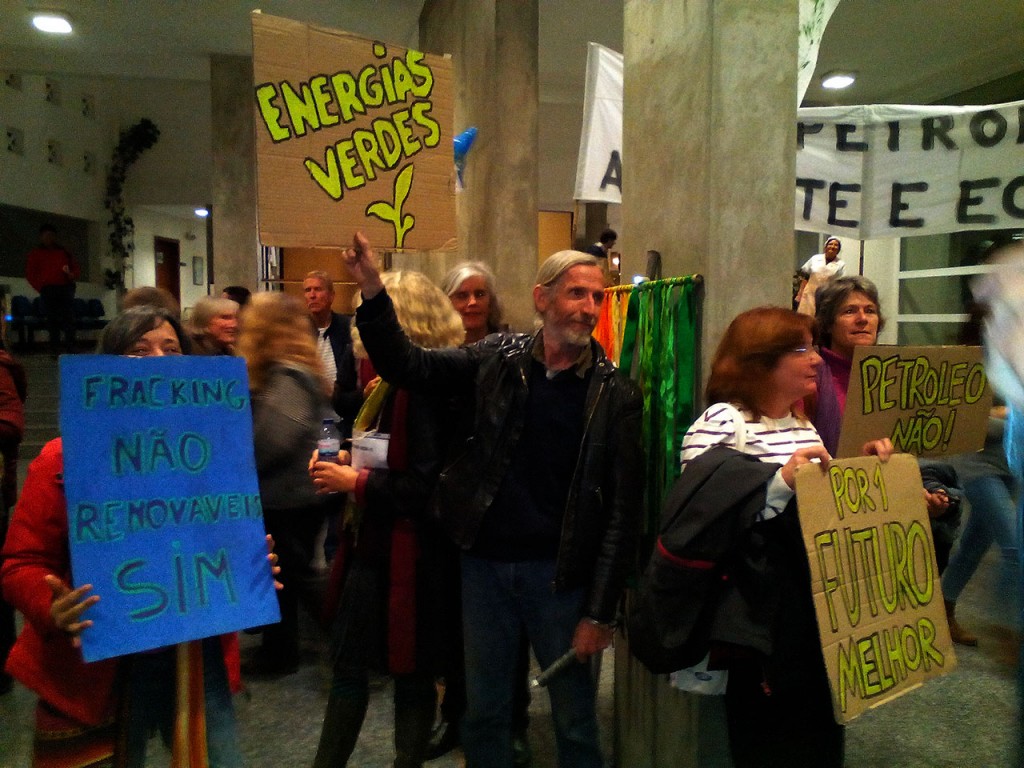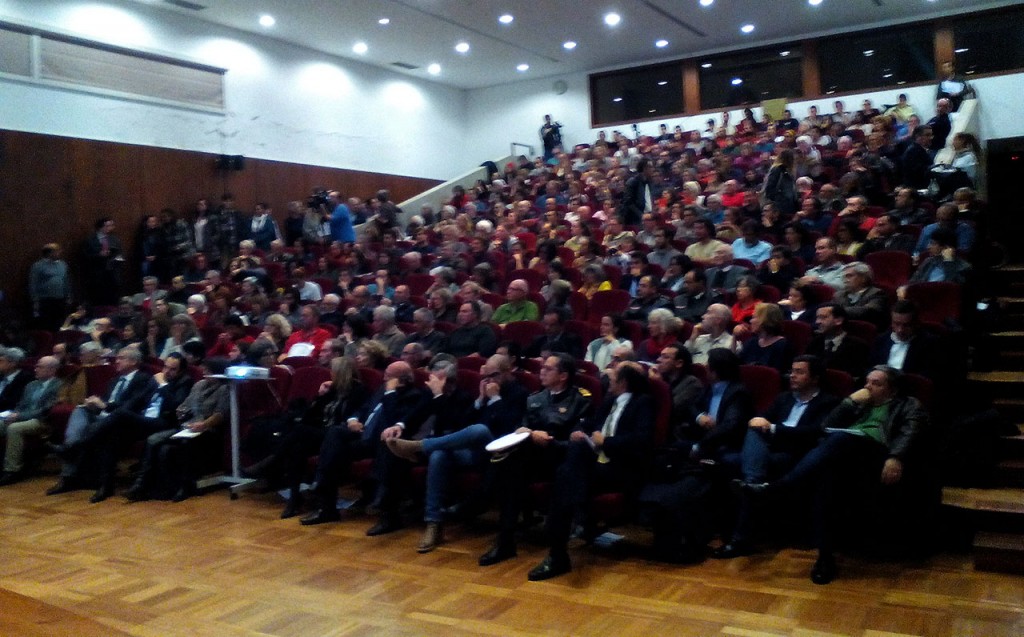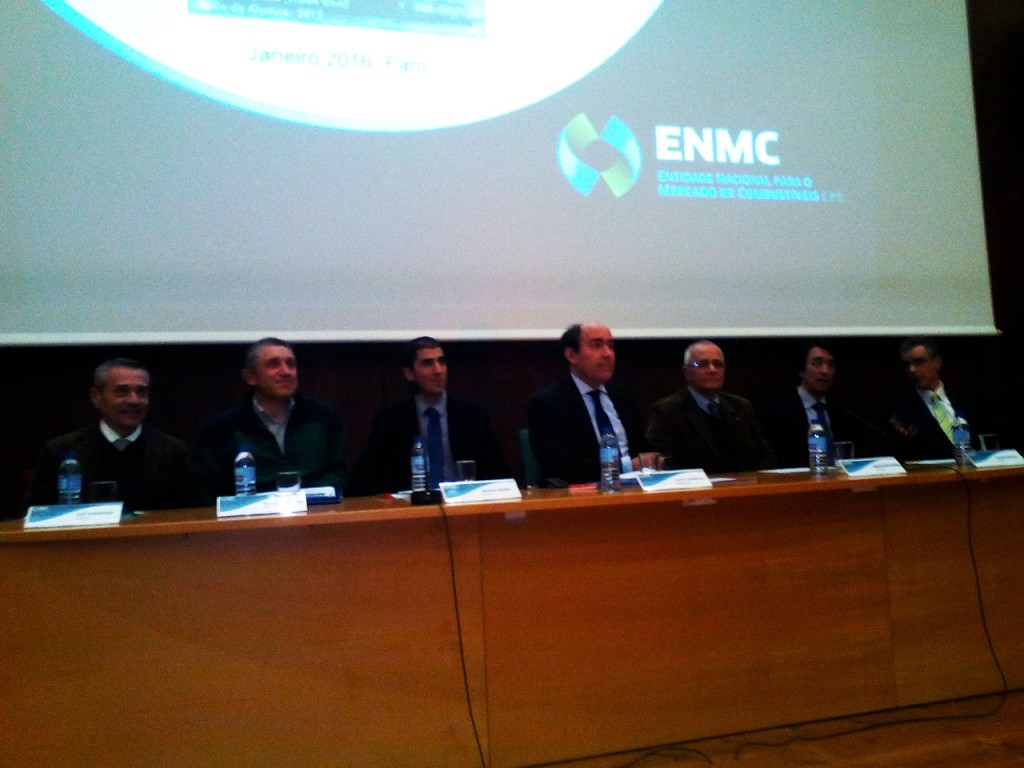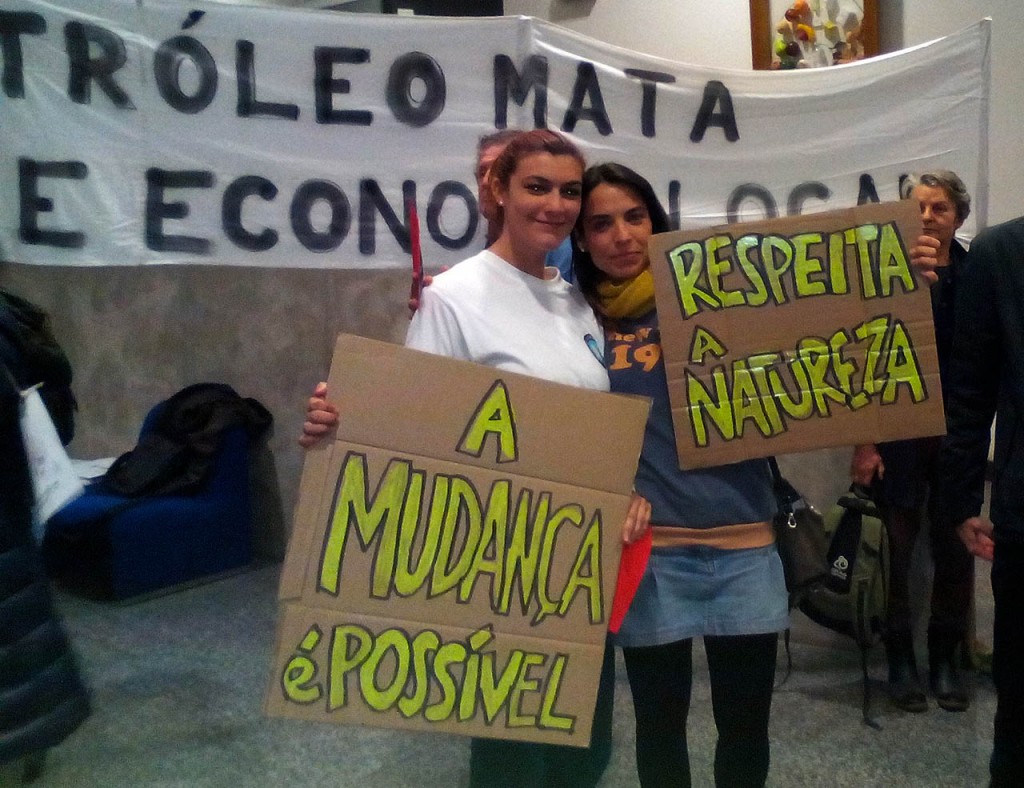 The potential return for Portugal, in the event that hydrocarbon exploration even advances, in the Algarve and elsewhere in the country, will always be less than 10% of the profit generated by the activity.
The potential return for Portugal, in the event that hydrocarbon exploration even advances, in the Algarve and elsewhere in the country, will always be less than 10% of the profit generated by the activity.
On the sidelines of a clarification session on prospecting and research for oil and natural gas, at sea or on land, which took place this Tuesday in Faro, the president of the National Entity for the Fuel Market (ENMC) spoke of a 6% return for Portugal, but quickly sent more concrete numbers «for the contracts available on the ENMC website».
The assurances given yesterday by the responsible for the regulatory authority and by the representatives of the oil companies that won the concessions did not convince the very public present, who can be considered to have represented the civil society of the Algarve well, as they brought together businessmen, mayors, deputies, members of associations and other citizens. All of them made it very clear that they do not want hydrocarbon exploration in the Algarve.
From the head of the ENMC, the message was given, to begin with, that "no one likes oil, not me, not you, but as long as society is addicted to fossil fuels, it is necessary to explore them". A declaration that earned him a lot of cheers, but that did not prevent Paulo Carmona from repeating it and affirming that, if oil is found, "we will be rich".
Analyzing his words later, it is not at all clear that this is so. Perhaps for this reason, Paulo Carmona did not want to dwell on the compensation provided for by granting concessions to oil companies.
 The anti-oil exploration activist in the Algarve Elvira Martins, who has been studying the contracts in depth, had no problems in doing so and recalled that what is expected is that, in a first phase, – «and already after once the costs of prospecting, research and installation are paid and production costs are discounted» – , Portugal starts to receive an amount “which will initially be 3 to 5 percent”, which may increase later, without ever exceeding 10 percent.
The anti-oil exploration activist in the Algarve Elvira Martins, who has been studying the contracts in depth, had no problems in doing so and recalled that what is expected is that, in a first phase, – «and already after once the costs of prospecting, research and installation are paid and production costs are discounted» – , Portugal starts to receive an amount “which will initially be 3 to 5 percent”, which may increase later, without ever exceeding 10 percent.
And if, for Elvira Martins, the potential economic return of oil is a "secondary issue", since what is at stake "is the development model, which is not what we want for Portugal", for entrepreneurs and mayors this could be the main argument to try to stop the advance to the hydrocarbon exploration phase.
Representatives of business associations and mayors in the Algarve made a point of being present and it was already known what they were coming from, since, a few hours before the clarification session, had taken a joint position of open opposition to this type of operations, at sea off the Algarve and on land.
And the argument turns out to be simple: in a tourist region that generates gains of more than 5 billion euros, in exports, for the national economy, it is unthinkable to move forward with an activity that will never yield profits in the same order and can "kill" the Golden eggs chicken.
The president of the business association NERA Vítor Neto confronted ENMC and representatives of oil companies, recalling the weight of Algarve Tourism for the national economy. On the other hand, oil exploration could, eventually (the possibility, no one denied, is remote), allow Portugal to pay off its energy bill, which, according to studies, “would mean savings of 1,5 billion euros”.
 And if the balance here seems to be quite unbalanced, on the side of Tourism, when it comes to job creation, the difference becomes huge. The association leader says that the tourist activity in the region is responsible for "150 thousand jobs".
And if the balance here seems to be quite unbalanced, on the side of Tourism, when it comes to job creation, the difference becomes huge. The association leader says that the tourist activity in the region is responsible for "150 thousand jobs".
According to Paulo Carmona, who pointed out employment as one of the positive factors in oil exploration, this activity could create "hundreds of jobs, even a thousand", many of which, he pointed out, are highly qualified.
On the part of the mayors present, there was also a roundabout denial of oil exploration, mainly Onshore, ie in shallow water or on land. Jorge Botelho even left the question, which ended up not being answered, about what the visual impacts of the exploration will be.
The ENMC president, at the insistence of journalists on the environmental impacts and social and economic consequences of an eventual oil exploration in the Algarve, said that these are "the kind of arguments that should be presented in the public consultation phase". which may eventually happen, if any of the concessionaires move forward with a hydrocarbon exploration plan in the future.
Something that is far from being a certainty, as ENMC has stressed several times, since «since 1939, 175 prospecting operations have been carried out and spent more than 900 million euros on scientific research, without ever finding oil or natural gas in sufficient quantity to make its exploitation viable'.
This apparent lack of oil and natural gas in quantities that make their exploration profitable in Portugal has not prevented the five concessionaires from signing contracts and investing, so far and since 2011, 58 million euros in prospecting and research alone. As a matter of fact, this risk taking is what, as explained in the session, means that the counterpart for Portugal is so low, "in line with what other countries charge, such as Spain".
 Simplifying the issue, and comparing with Norway, a country rich in fossil fuels and repeatedly used as an example by ENMC, Portugal is subject to very low percentages of return because it is a non-producing country, that is, in which the probability of finding hydrocarbons is very small. In Norway, it is very likely to find oil or natural gas, so the counterpart is around 90 percent.
Simplifying the issue, and comparing with Norway, a country rich in fossil fuels and repeatedly used as an example by ENMC, Portugal is subject to very low percentages of return because it is a non-producing country, that is, in which the probability of finding hydrocarbons is very small. In Norway, it is very likely to find oil or natural gas, so the counterpart is around 90 percent.
In other words, in the case of Portugal, oil companies demand high yields, as, in a way, they are doing “the favor” of carrying out geological surveys and mapping that will revert to the Portuguese State, even if no oil is found. In Norway, however, it is the State that allows companies to exploit its rich and desirable reserves.
The mayors were also given a guarantee that «they will do everything to try to reverse and cancel all existing contracts», related to the Algarve.
Second revealed to Sul Informação Jorge Botelho, on the sidelines of the session, there is already a meeting scheduled with the Government for the end of this month of January.


















Comments